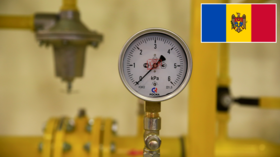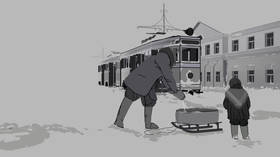Moldova enters state of alert over natural gas shortage as Chișinău looks to sign new long-term contract with Russia’s Gazprom

Moldova has introduced a state of alert over falling gas supplies and the lack of a new deal with Russian energy provider Gazprom. The previous contract ended in September, and the two parties have failed to agree on a renewal.
On Wednesday, the country’s Deputy Prime Minister Andrey Spinu revealed that Moldova wants to make deals with Romania, Ukraine and Russia as a means to battle the current crisis, which is seeing consumption overtake imports. Further adding to the problem is Moldova’s lack of gas deposits, meaning it needs to import all of the gas it needs.
Moldova and Gazprom are yet to extend their agreement due to the proposed price of $790 per 1,000 cubic meters, seen by Chișinău as too expensive. The current contract, which sees gas prices at $200 per 1,000 cubic meters, expired at the end of September. A temporary one-month extension, at the higher spot price, has been agreed upon while negotiations continue.
As well as increasing the price, Moldova has also accused Russia of cutting supply by around a third.
Also on rt.com Russia is NOT manipulating gas market to drive up costs, European Commission says in response to claims Moscow plotted price riseThe shortage comes as Europe struggles with inflated gas prices, mainly caused by exploding global demand. Gazprom has also been reluctant to provide additional gas to Europe through the spot market, instead preferring to sign long-term contracts.
In the European Union, some politicians have accused Moscow of artificially keeping the gas supply low as a means to drive up prices. This has been denied on multiple occasions by the Kremlin. However, on Friday, European Commission executive vice-president Frans Timmermans revealed that there is no evidence that Russia is manipulating the market, putting the blame on skyrocketing demand.
Like this story? Share it with a friend!














